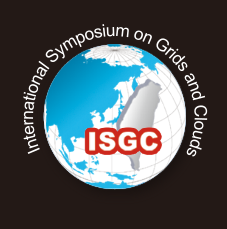

The International Symposium on Grids and Clouds (ISGC) 2017 will be held at Academia Sinica in Taipei, Taiwan from 5-10 March 2017, with co-located events and workshops. The main theme of ISGC 2017 is “Global Challenges: From Open Data to Open Science”.
The unprecedented progress in ICT has transformed the way education is conducted and research is carried out. The emerging global e-Infrastructure, championed by global science communities such as High Energy Physics, Astronomy, and Bio-medicine, must permeate into other sciences. Many areas, such as climate change, disaster mitigation, and human sustainability and well-being, represent global challenges where collaboration over e-Infrastructure will presumably help resolve the common problems of the people who are impacted. Access to global e-Infrastructure helps also the less globally organized, long-tail sciences, with their own collaboration challenges.
Open data are not only a political phenomenon serving government transparency; they also create an opportunity to eliminate access barriers to all scientific data, specifically data from global sciences and regional data that concern natural phenomena and people. In this regard, the purpose of open data is to improve sciences, accelerating specifically those that may benefit people. Nevertheless, to eliminate barriers to open data is itself a daunting task and the barriers to individuals, institutions and big collaborations are manifold.
Open science is a step beyond open data, where the tools and understanding of scientific data must be made available to whoever is interested to participate in such scientific research. The promotion of open science may change the academic tradition practiced over the past few hundred years. This change of dynamics may contribute to the resolution of common challenges of human sustainability where the current pace of scientific progress is not sufficiently fast.
ISGC 2017 created a face-to-face venue where individual communities and national representatives can present and share their contributions to the global puzzle and contribute thus to the solution of global challenges.

| Biomedicine & Life Sciences |
| Investigating Community Detection Algorithms and their Capacity as Markers of Brain Diseases PoS(ISGC2017)018 pdf |
| Data Management & Big Data |
| Progress in Machine Learning Studies for the CMS Computing Infrastructure PoS(ISGC2017)023 pdf |
| Humanities, arts & social sciences applications |
| Occupation recommendation with major programs for adolescents PoS(ISGC2017)003 pdf |
| Data Science as a Foundation towards Open Data and Open Science: The Case of Taiwan Indigenous Peoples Open Research Data (TIPD) PoS(ISGC2017)004 pdf |
| Infrastructure clouds and virtualisation |
| Synergy, a new approach for optimizing the resource usage in OpenStack PoS(ISGC2017)012 pdf |
| CDAC Cloud IP Store: A Repository for your Intellectual Properties PoS(ISGC2017)013 pdf |
| A single rack cloud centre with unprecedented power and thermal efficiency PoS(ISGC2017)016 pdf |
| The "Cloud Area Padovana": Lessons Learned after Two Years of a Production OpenStack-based IaaS for the Local INFN User Community PoS(ISGC2017)021 pdf |
| GUOCCI – The Entryway to Federated Cloud for Small-scale Users PoS(ISGC2017)026 pdf |
| Massively distributed computing and citizen sciences |
| Explore multi core virtualization on the ATLAS@home project PoS(ISGC2017)014 pdf |
| Networking, security, infrastructure & operations |
| Coordinating Operational Security in evolving distributed IT-Infrastructures PoS(ISGC2017)007 pdf |
| A solution for secure use of Kibana and Elasticsearch in multi-user environment PoS(ISGC2017)008 pdf |
| A Method for Remote Initial Vetting of Identity with PKI Credential PoS(ISGC2017)009 pdf |
| The LHC Tier-1 at PIC: ten years of operations PoS(ISGC2017)011 pdf |
| Can R&E federations trust Research Infrastructures? - The “Snctfi” Trust Framework PoS(ISGC2017)024 pdf |
| WLCG Security Operations Centres Working Group PoS(ISGC2017)025 pdf |
| Physics (including hep) and engineering applications |
| Examination of dynamic partitioning for multi-core jobs in the Tokyo Tier-2 center PoS(ISGC2017)001 pdf |
| An Automated Scalable Framework for Distributing Radio Astronomy Processing Across Clusters and Clouds PoS(ISGC2017)002 pdf |
| Supercomputing, High Throughput, Accelerator Technologies and Integrations |
| EGI federated platforms supporting accelerated computing PoS(ISGC2017)020 pdf |
| Virtual research environment |
| Data Provenance Tracking as the Basis for a Biomedical Virtual Research Environment PoS(ISGC2017)015 pdf |
| A Switching Mechanism of Visualization Middleware and Application Using Docker PoS(ISGC2017)017 pdf |